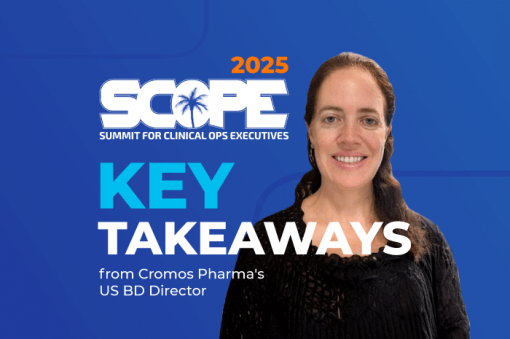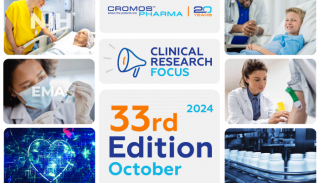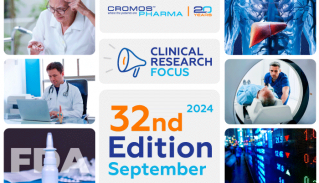
Key Takeaways from SCOPE 2025: Insights from Cromos Pharma’s US Business Development Director
With the conclusion of the 16th Annual Summit for Clinical Operations Executives (SCOPE) held from February 3-6, 2025, in Orlando, industry experts shared key insights into the future of clinical research and development. This year’s discussions centered on artificial intelligence, decentralized clinical trials (DCTs), localization, and strategies for improving efficiency and diversity in clinical trials.
Among those gaining firsthand insights into these industry trends was Nicole Brenna, US Business Development Director at Cromos Pharma, who attended SCOPE 2025 and compiled the key takeaways presented in this report.
Localization is Key to Patient-Centric Research
As clinical trials expand globally, localization has become a critical factor. Tailoring trials to specific regions, cultural contexts, and regulatory frameworks ensures greater participation, improves patient adherence, and enhances overall trial success rates.
Pragmatic Clinical Trials Are Bridging the Gap Between Research and Real-World Applications
The industry is seeing a shift towards pragmatic clinical trials that combine controlled study environments with real-world data. This approach enhances the generalizability of research findings, leading to better healthcare decision-making and regulatory acceptance.
Scaling Clinical Programs Efficiently
Small biopharma companies face unique challenges in scaling clinical programs. Key discussions focused on strategies for optimizing resources, selecting the right trial partners, and ensuring financial sustainability while maintaining high-quality data collection and compliance.
Addressing Challenges in Study Startup
Study startup remains a critical bottleneck in clinical research. Common hurdles such as contract negotiations, regulatory approvals, and feasibility assessments were addressed, with strategies presented to streamline processes and accelerate trial initiation.
Engagement and Collaboration Are Driving Industry Success
Beyond traditional conference sessions, interactive events like industry competitions and collaborative panels emphasized the importance of engagement among researchers, sponsors, and stakeholders. This collaborative approach fosters innovation and ensures that clinical research remains adaptive to industry needs.
AI and Machine Learning Are Reshaping Clinical Development
Artificial intelligence and machine learning continue to gain traction in optimizing clinical trials. These technologies are streamlining patient recruitment, automating data analysis, and refining protocol design, ultimately reducing trial cycle times and improving decision-making in real time.
Decentralized Trials Are Expanding Access and Diversity
Decentralized clinical trials (DCTs) remain a major focus, with evidence suggesting they significantly enhance patient engagement and diversity. By minimizing geographic barriers and utilizing digital tools, DCTs are making trials more inclusive and improving retention rates. Regulatory support is also increasing, further driving the adoption of decentralized models.
Shaping the Future of Clinical Research
SCOPE 2025 highlighted the dynamic transformation happening within the clinical trial landscape. The integration of AI, the widespread adoption of decentralized models, and the emphasis on patient-centric approaches are paving the way for more efficient and inclusive research methodologies.
At Cromos Pharma, we are committed to supporting this evolution by delivering innovative clinical trial solutions that drive efficiency and enhance patient outcomes. By embracing technological advancements, fostering collaboration, and staying agile in a rapidly changing environment, we help our partners navigate complexities and achieve meaningful progress.
The industry has more resources, data, and expertise than ever before. By working together, leveraging modern tools, and prioritizing patient well-being, we can accelerate medical breakthroughs and ensure a more effective future for clinical research.






























